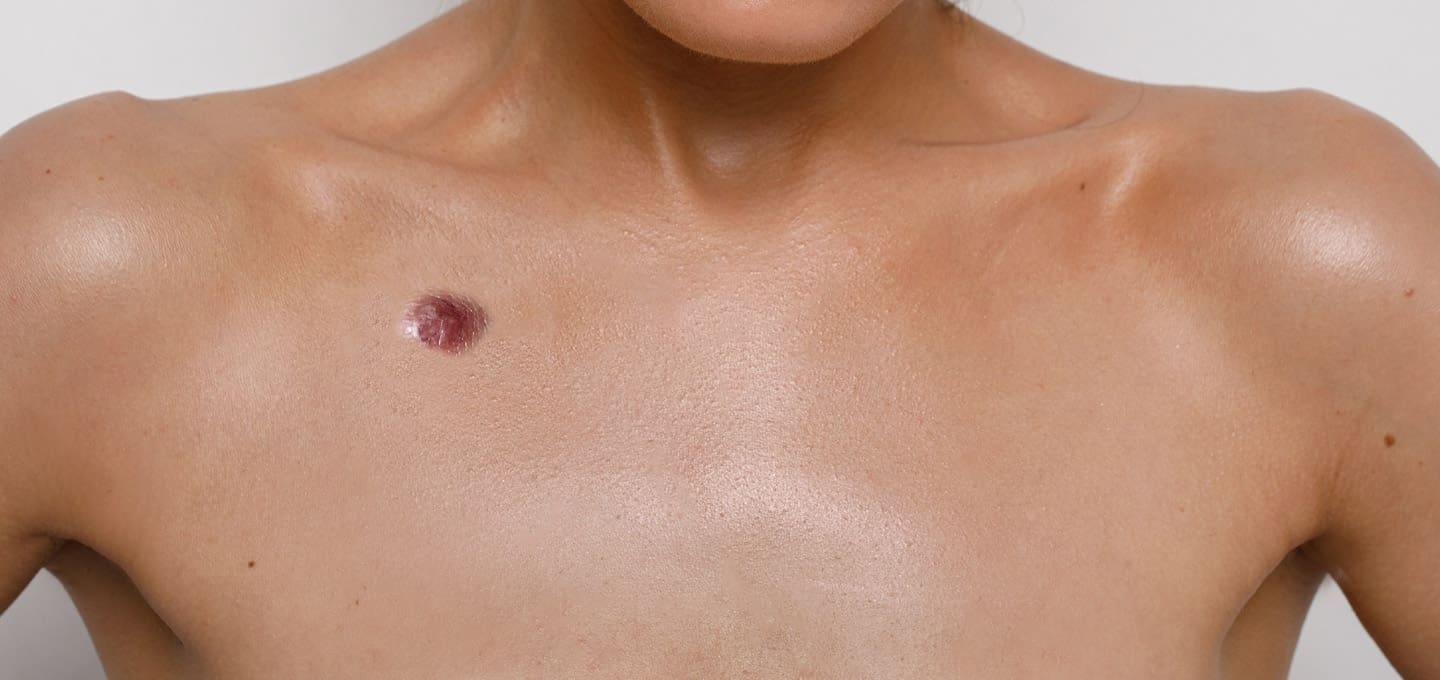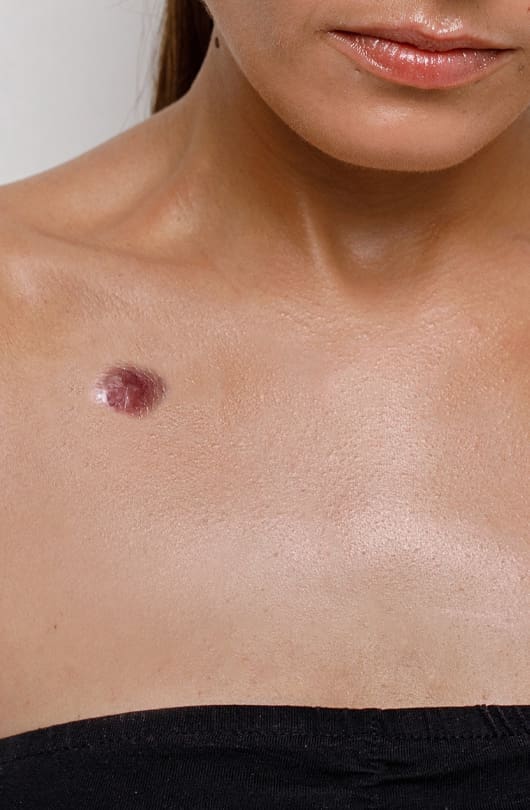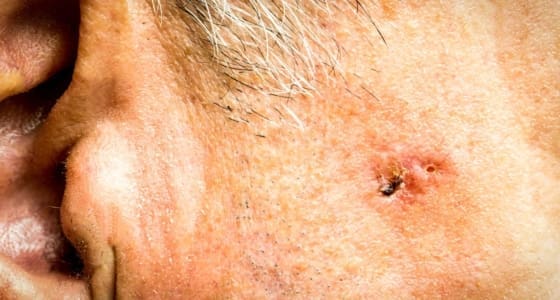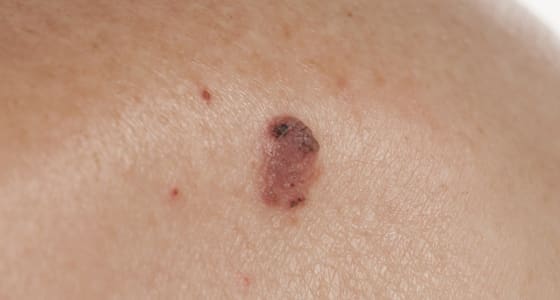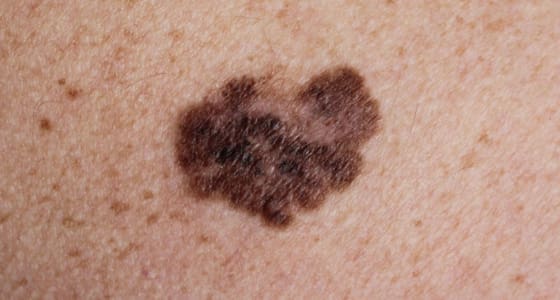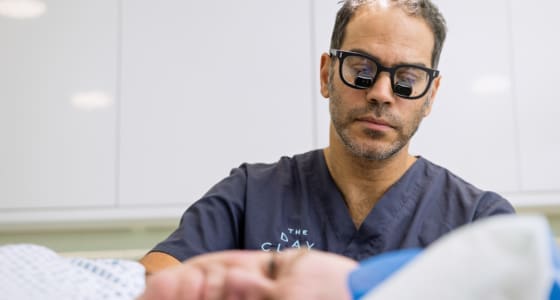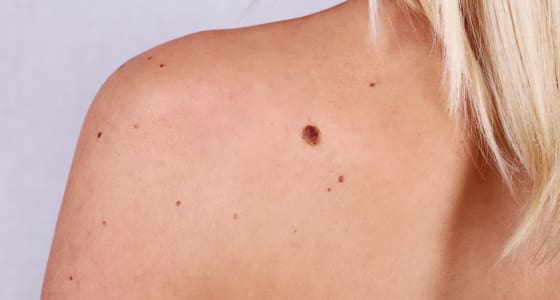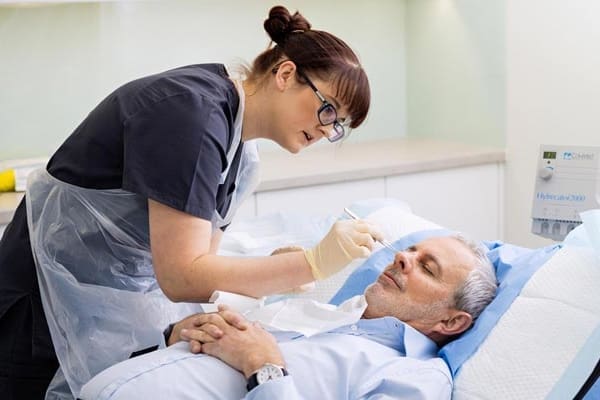Skin cancer is one of the most common cancers and its incidence is increasing in the UK. It occurs when there is an uncontrolled growth of abnormal skin cells. One of the main causes of skin cancer is excessive exposure to UV (ultraviolet) radiation from the sun or tanning beds. Some people can be genetically predisposed to skin cancer or have other health conditions which make them more vulnerable to developing it.
There are three main types of skin cancer:
BASAL CELL CARCINOMA (BCC)
This is the most common type of skin cancer and is a ‘non-melanoma’ skin cancer. This means is a type of cancer that develops slowly in the upper layers of the skin and is less dangerous than a melanoma skin cancer. It often presents as a small shiny bump or a pink or red patch on the skin. BCCs grow slowly and rarely spread to other areas of the body.
SQUAMOUS CELL CARCINOMA (SCC)
Like BCC, squamous cell carcinoma is a non-melanoma type of skin cancer. It often appears as a firm red nodule or a flat scaly lesion. It can grow quickly and spread to other parts of the body if not treated at an early stage.
MELANOMA
Melanoma is the most dangerous type of skin cancer. Often it appears as a new mole or a change in an existing mole. Melanoma can spread to other parts of the body and can be life-threatening if not detected and treated at an early stage.
It is important to protect your skin from UV radiation from the sun by wearing a high SPF sunscreen, wearing protective clothing and avoiding excessive sun exposure. We advise everyone to regularly self-examine their skin for any changes or concerns. This, along with an annual skin check with a dermatologist can help detect skin cancers at an early stage when they are the most treatable.
If you notice and changes to your skin, such as new growths, change in skin texture, changes in colour or size of moles, or sores that do not heal, we advise seeking medical evaluation as soon as possible.
